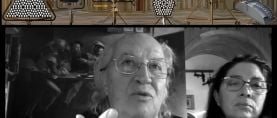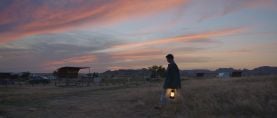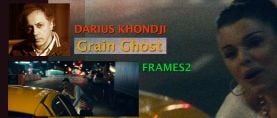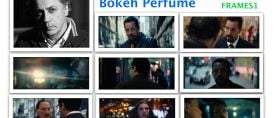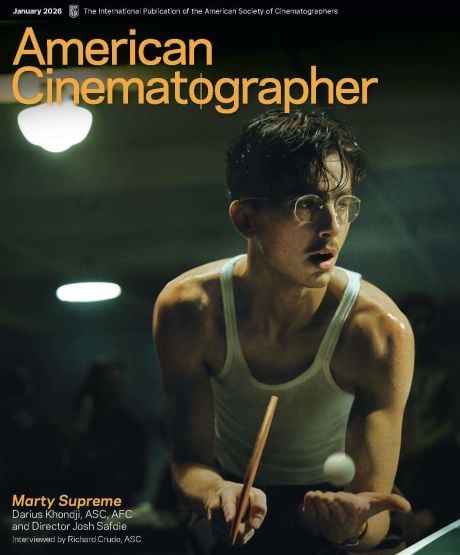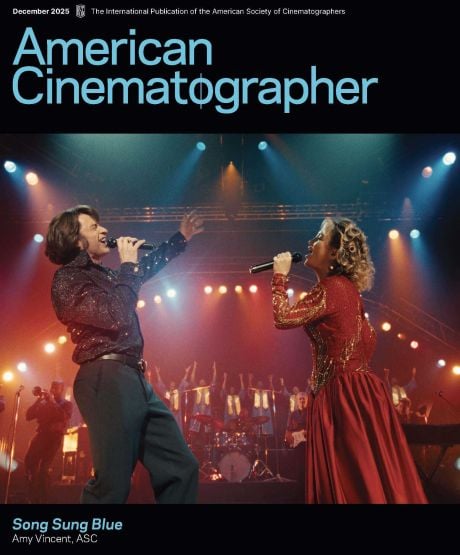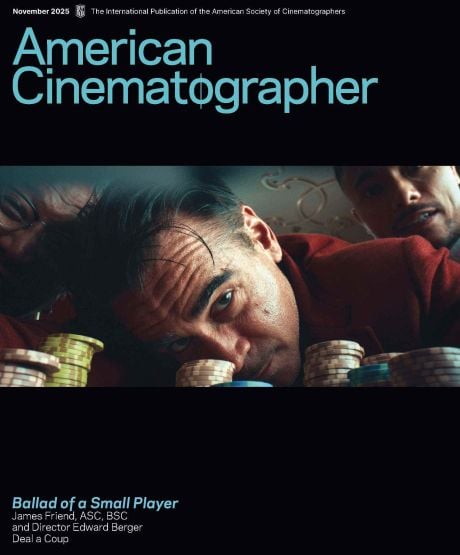
Nomadland Director Chloé Zhao - Extended Interview
In this in-depth interview, director Chloé Zhao discusses Terrence Malick, her filmmaking approach, people playing themselves, the themes of Nomadland, American landscapes and her cinematographer Joshua James Richards
This post offers the full version of my telephone interview with director Chloé Zhao.
+++
-- Terrence's Daughter
-- Individuals versus a Way of Life
-- People Playing Themselves
-- Solitude in Nature
-- The Heartland
-- Joshua James Richards
-- Future
+++
Terrence’s Daughter
Benjamin B: I feel like you are Terrence Malick’s daughter.
[Chloé Zhao laughs]
You are helping to invent a new kind of cinema, creating a new authentic realism based on nature, what I'm calling "New Naturalism".
Chloé Zhao: I would love to be Terry's daughter. Terry’s films have such a huge influence on Josh and I [referring to cinematographer Joshua James Richards]. Not just the films themselves, but how they were made and beyond what’s on the screen, what he was trying to do.
If you really watch them many times, at different stages of your life, you understand a bit more what the filmmaker is trying to figure out for himself by making those films. It’s almost like a necessity for him, to explore something he wants to understand about the world, about human existence, about all these bigger questions he had. And that shines through his cinema. That’s why his films are so intimate and also universal at the same time. He’s exploring questions that everyone can relate to.
So for me, selfishly, with these three films [Songs My Brothers Taught Me in 2015, The Rider in 2017 and Nomadland in 2020], there’s a lot of myself asking these questions as well, and by making these films I was able to have some of them explored.
And beyond all these nice things that we learn from Terry, like shooting at magic hour, or with wide angle lenses, the most important thing is what cinema really means to a filmmaker.
+++
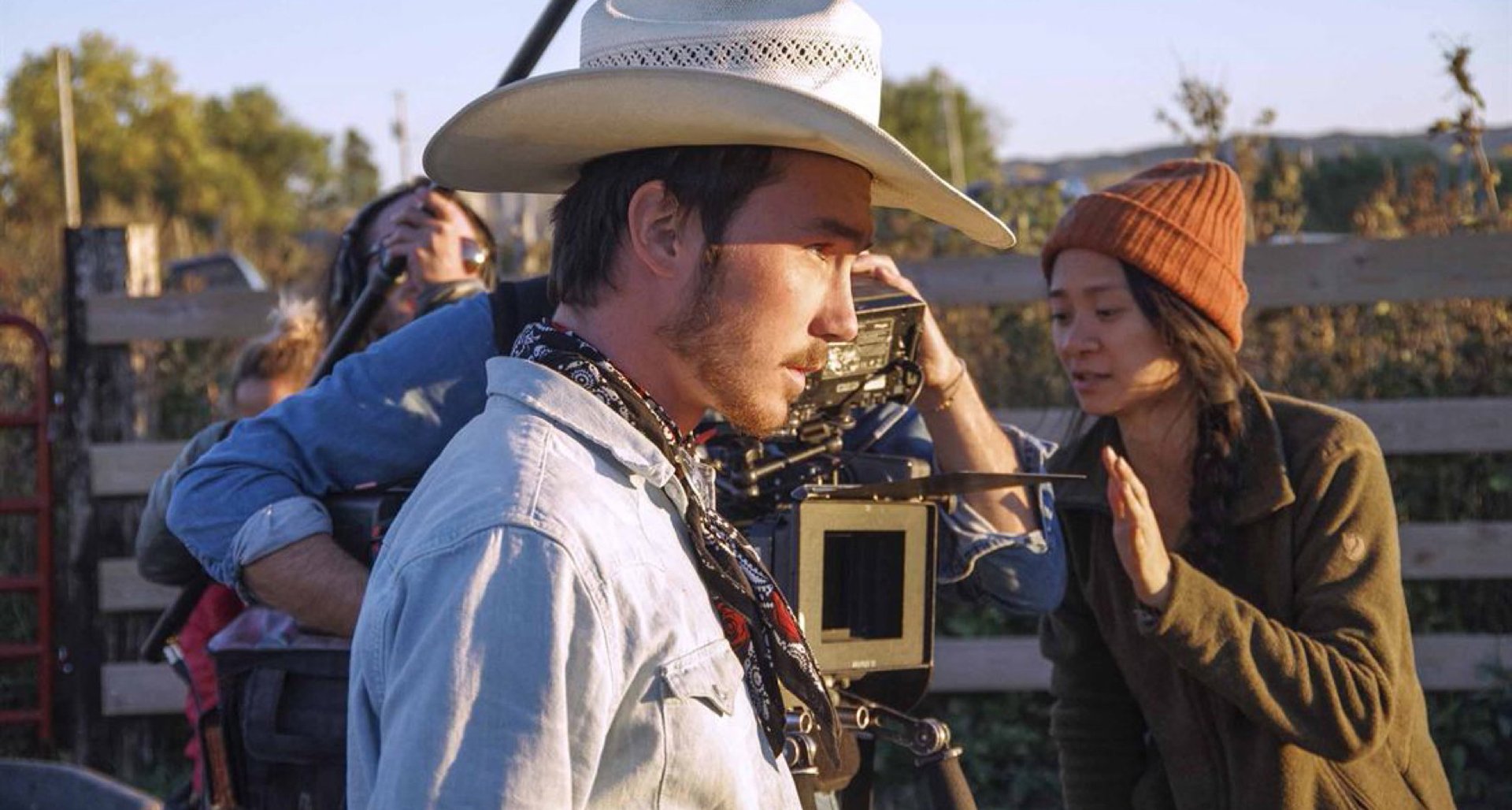
+++
Individuals versus a Way of Life
BB: The traditional Hollywood motif is “story, story, story”. You have a unique way of creating the screenplay. Instead of starting with a story, you meet real people, get to know them, write a screenplay based on them, and then ask them to play themselves. With you, it seems that the characters are more important than story.
CZ: That's the way I explore. I was lucky enough to meet these unique individuals who become guides for me. And to favor story over a portrait of them would undermine that process.
BB: Part of your process is what I could call immersion. You spent time on the Pine Ridge reservation with the Lakota Sioux in South Dakota. It’s almost like you joined the tribe.
CZ: I always make an effort to distinguish between a group of people and a way of life. A way of life on the reservation, or a way of life in a nomadic community has everything to do with their environment, the pacing of life, their priorities. But that has nothing to do with them as people because anybody could have that way of life.
It’s very important because I don’t want my films to represent a whole group of people because we make such a big effort to say these are individuals, with very universal human struggles.
+++
+++
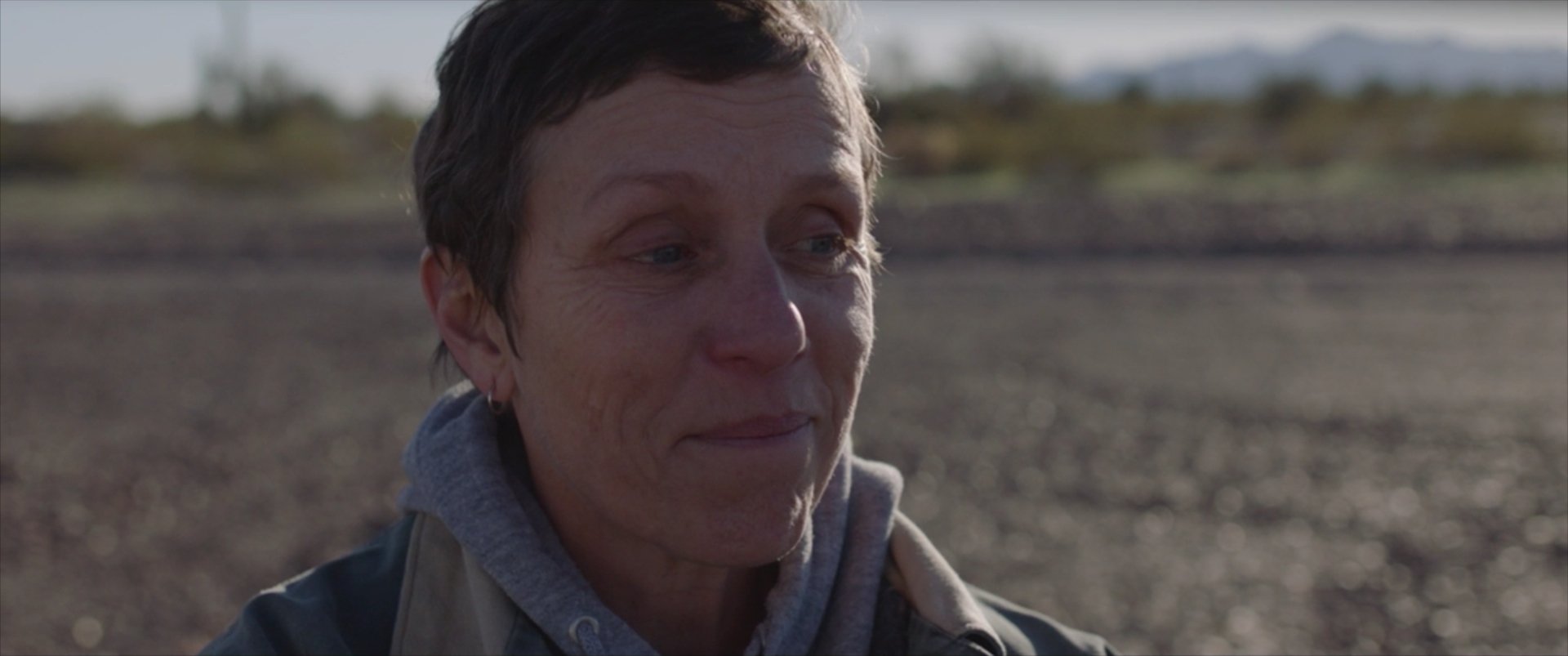
+++
People Playing Themselves
CZ: So on the reservation I met a kid named John Reddy [the hero of Songs My Brothers Taught Me]. That’s when the character is created. And him being a Lakota, him living on the reservation is only a part of his identity, of who he is as a unique individual: a young man coming of age… That to me is the most important thing. And it’s the same thing with with The Rider and Nomadland.
BB: A key difference is that in The Rider, Brady is a real character, but in Nomadland, for the first time in your films, you have created a completely invented character, Fern, played by Frances McDormand.
CZ: Invented, but at the same time there is a very strong collaboration with Frances, in a similar way to how I collaborated with Brady.
I brought in many aspects of Frances’ own life into the film, because to me that was the only way. From the very beginning Fran and I agreed that that is what we were going to do… That’s the only way that we could work it, to get her character into a world where everyone is playing a version of themselves.
Obviously it’s not as much a version of herself as with Swankie [a key character playing herself in Nomadland]. There are varying degree of how much people are playing a version of themselves.
A lot of the process of the creation of Fern is figuring out how much is pure fictional and how much is something that Fran can contribute from her own life.
BB: Is Fern also partly you?
CZ: You can say that to a certain degree. It’s not me as a person, but what I’m hoping to understand and explore through that character. With every character including Johnny [Songs] and Brady [Rider], yes there’s a huge part of who they are, but there’s a huge difference between how they are on screen and how they are in real life. If you met Brady, you’d see he’s actually very positive and hilarious, and the same with Johnny.
So, like you said, I think there’s definitely a bit of the filmmaker in all the characters they put in the movies... I go back to what I was saying earlier, I’m trying to understand something, trying to explore something through these characters. So I’m definitely having some influence on it, for sure.
BB: Yes and a lot of it has to do with identity, in the sense of "who am I?", an exploration of your own identity.
CZ: Yeah, that’s a big part of it.
BB: I completely agree with you that true filmmaking tries to get at something like Malick does. It’s not just naturalism, but also the ambition of the theme that you’re trying to address.
CZ: You’ve hit the nail on the head. I’m not sure if I can make a film that doesn’t try to do that. It doesn’t matter what genre, because filmmaking is really a way of living and life is short. [she laughs]
For me to do this I have to know that it’s going to mean something to me, to grow as a person. So that becomes a crucial thing in deciding to do a project: does the story and do these characters give me the opportunity to be able grow in that direction… to be able to reach for something bigger beyond what their struggle is, what appears on the screen.
+++
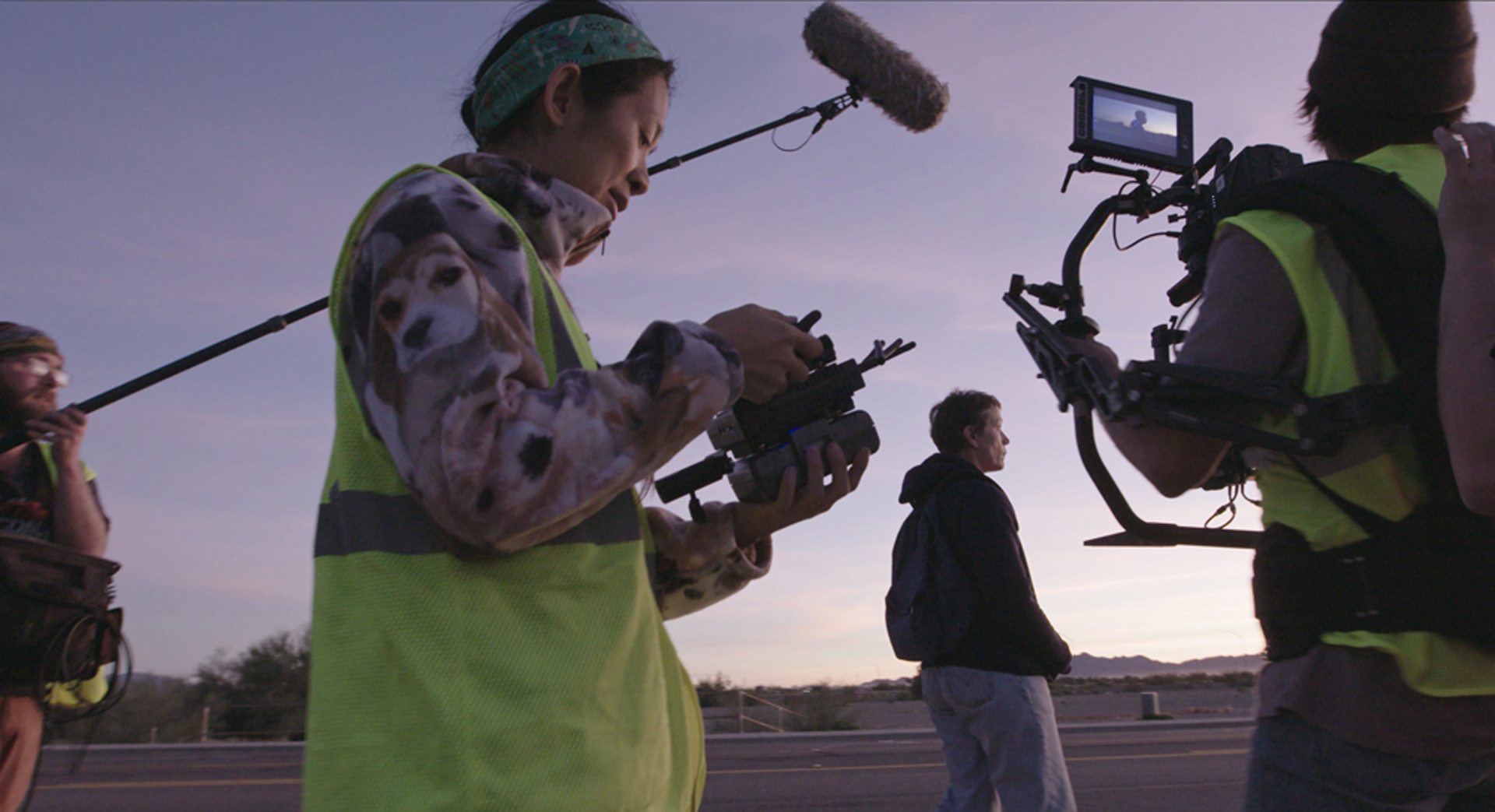
+++
Solitude in Nature
BB: Can you evoke what these themes might be in Nomadland? Fern is someone who has lost everything and is left to herself, but she is healed by the tribe of nomads, and her contact with nature. There’s almost something transcendent.
CZ: There are different layers. I think everyone takes something different, from what is really important for them. For me, on a personal level, not just as a filmmaker, but as a viewer myself, it would be the importance of solitude. Solitude in nature…
You know, it’s the dirt underneath our feet, that’s where we come from, that’s where we’ll go to. And also looking at a rock, looking at a desert, a landscape. Things that have been here way before us and will be here long after we’re gone, that feeling of being a part of something much bigger than ourselves.
Sometimes we forget that these days, being in front of our computer. Fern has a list of things that define her, who she is. Then she is suddenly pushed into this lifestyle, and it’s very uncomfortable and difficult to suddenly strip that all away.
When you’re standing in that landscape and there’s nothing else that defines you, except that you’re part of this… Nothing matters because you’re part of this cycle of life, it comes and goes, everything is decided. It’s a very humbling feeling and I think that’s something we all need as a species.
BB: There’s that wonderful scene when they’re looking at the planet Jupiter through a telescope, and the astronomer says “Look at your hand, you’re looking at stars”.
CZ: Yes. We are all made of star dust. I always loved that, I love the fact that we are all connected through this hydrogen, helium star dust – or whatever it is. The fact that we’re all part of it because it comes in the soil. It’s really cool to think that way in a world where we’re constantly being reminded how different we are.
+++
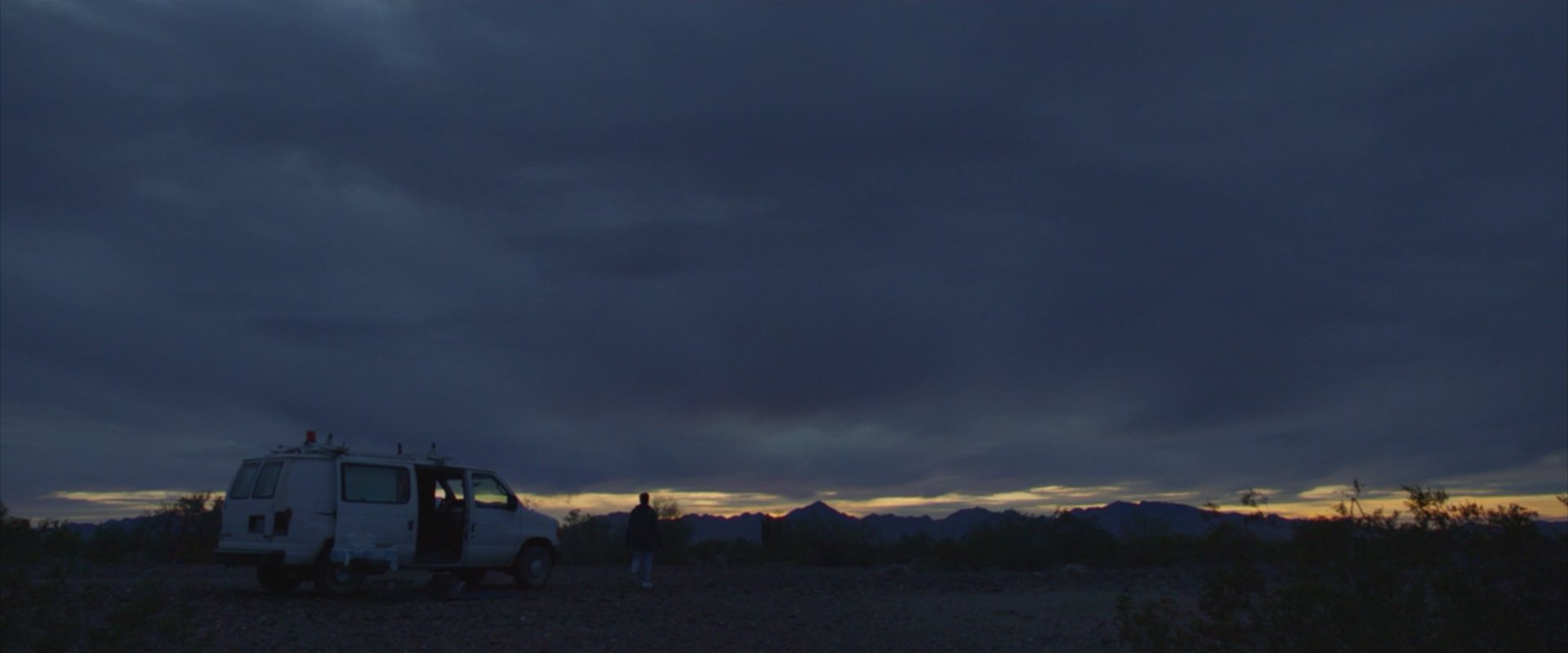
+++
The Heartland
BB: In Nomadland you are a landscape artist as well as a portrait painter. Joshua spoke to me about a journey into the heartland, I love that word. Fern is very American, like the pioneers.
CZ: It’s obvious that we have a very strong love and affection for the heartland of America…
I’m sorry you might hear my chickens, I have to bring them their food. They’re so loud. [laughter]
'I grew up in China and the UK, two ancient, really old countries, with a documented history of thousand of years. The land has been farmed and developed... You really feel the ancestral existence of people on this land.
When you go to the American West, the Heartland, it’s more of a ranching community and it’s very rugged, you can’t really farm as much, especially western South Dakota. You walk into the Badlands, and you feel like there is like a bone of a dead animal that’s been there for a long, long time; it hasn’t moved.
So there’s something about that is ancient but also young… it’s hard to explain. It’s very different than when I go to the wilderness when I am in China or the UK. It’s a different feeling because here you still can find places that haven’t been touched by the human footprint very much. The land hasn’t been dug even once, you know, it’s a very different feeling. I love something about it.
BB: Maybe that’s why there are so many skies in your films, the sky is also completely untouched…
CZ: Yeah, no planes, no telephone poles. It’s really hard to find those places these days in developed countries. Because this country’s so young, you feel that you can really go to places where you don’t feel like they've been conquered. I guess that’s the word: “conquered.”
This landscape is so humbling, and it’s scary by the way, when you’re driving over those rugged canyons and mountains. When I’m traveling, there are parts of Utah or Wyoming where I go, “Oh Jeez, I can’t imagine what it was like for a pioneer."
+++
Grief
BB: Nomadland is also about overcoming grief, about a woman who says she’s still married to her dead husband. The film is dedicated to "those who are departed", which alludes to Fern’s discussion about overcoming grief with Bob Wells, a leader of the Nomads. Is there a personal experience there? You don’t have to answer if you don’t want to.
CZ: It’s not because of someone I lost personally. I was raised an atheist and still probably am -- maybe agnostic is a better word. So I always viewed death as final, you know, there’s no after life, that’s not how I was raised. But as I got older, I met a lot of people that have their own beliefs of what’s beyond death. The older I got the more curious I became about that and, you know, Tree of Life explores that.
BB: Yes, that’s the central question of Tree of Life.
CZ: Yeah, exactly: why did that happen to that boy? Sitting and hearing Bob Wells talking, I remember I was feeling the toll of the transience, of coming to one place, doing the filming, getting to know people and then leaving. I was feeling the toll of that after four months, and talking with Bob Wells one of the last things we did... I had to walk away after he did his monologue, I had to compose myself. And it was very healing because he was saying to me it doesn’t if we depart from each other, we’ll see each other down the road one way or another.
People like Brady or Bob Wells are giving me another... Not necessarily a wisdom, but this understanding they have from their life experience of what grief means, and what death means, and how do they cope with that as a human being. It’s very beautiful and very important to me, so that dedication at the end is my way of echoing what he’s saying, and there’s no answer to that. It’s a proposal to think about... What does "See you down the road" mean for people who come from different kinds of upbringing?
+++
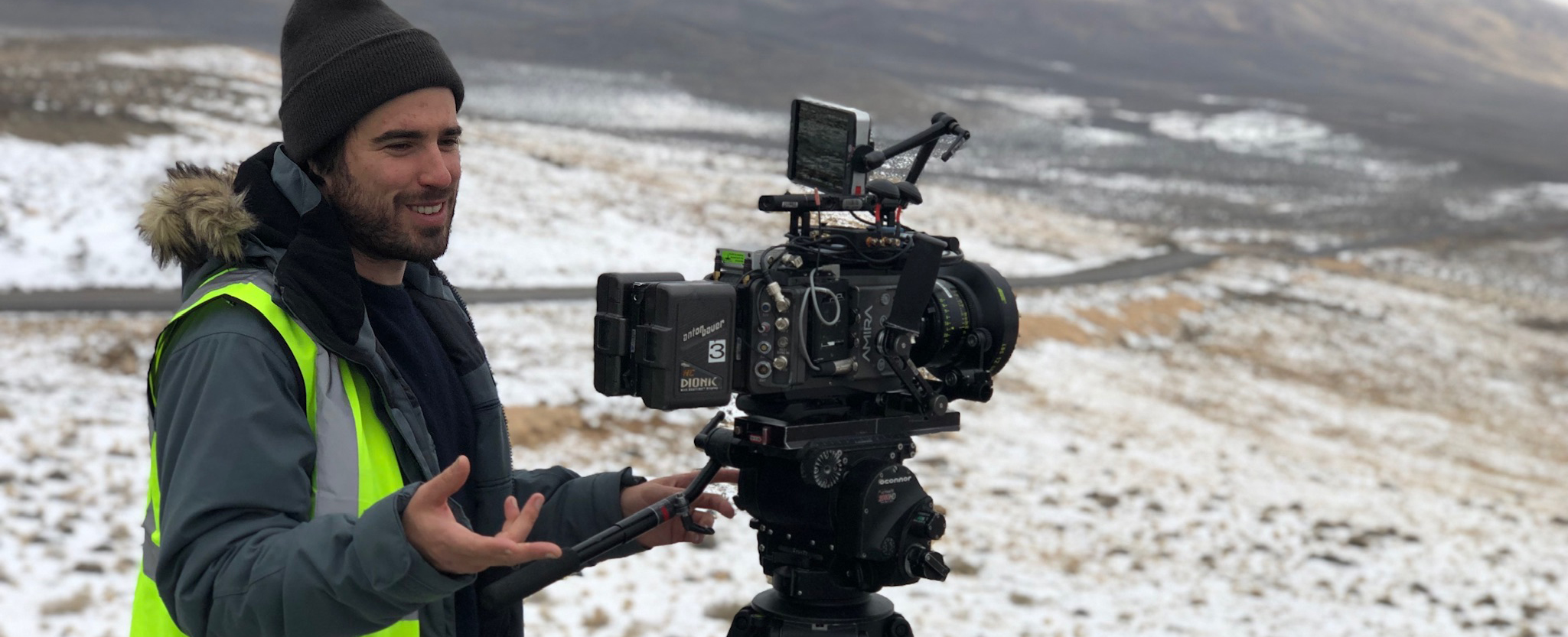
+++
Joshua James Richards
BB: Joshua James Richard has been the cinematographer of your first three films. I believe that collaborations of a director and cinematographer over many films allows both filmmakers to go farther than they would alone.
CZ: When you get comfortable with someone that gives you the space to push yourself for sure. You go further. You ask: "how much further can we go, how much further can we push this and still be good at it?"
Josh and I really pushed each other in the three films we did together. He was also the operator on The Eternals [the big Marvel film Chloé directed after Nomadland, with cinematographer Ben Davis, BSC].
I think Josh has a lot of talent as a director as well. I think there’s also a time for him to explore that, and we’ll hopefully keep growing.
BB: You guys are partners too?
CZ: To be honest, it’s not always a sunny sky. [laughter]
I know that with any collaborator, the stronger the collaboration is, the more friction there will be.
I think the most important thing is: do you agree how you want to conduct yourself in the world as a human being? And making films this way, it’s very important. Josh and I have always been on the same page on how are we going to behave and present ourselves when we go into people’s lives.
BB: With respect for the dignity of the people you shoot?
CZ: Yeah, because once you have that then it shines through on how you film these people, I trust that he has the best intention, the most respectful one, and I trust that he truly connects with them.
I think an operator really should have that kind of empathy, connection towards a person when their light shines, to the way they find that light. That’s how he can see this individual even in the darkest times. I find that Josh has that empathy, and that’s what makes him a great cinematographer
BB: I think that you may also have a future as a cinematographer! Joshua told me that when the light’s not right outside, you say: “let’s not shoot now, let’s go inside”. That’s rare on a film set.
CZ: Yeah, because from very early on I have had very few resources, you know, I made the films so cheaply we had nothing in our favor but our light in the sky. We had nothing but the freedom of time.
So if I can’t put on a huge production, I’m going to wait for those twenty minutes. No matter how much money you have it’s very hard to get that light right.
+++
Future
BB: Did you ever meet Terrence Malick?
CZ: I haven’t, but we have been communicating. I’m waiting for the right time. Hopefully we’ll just go to Texas, like a pilgrimage.
BB: I've heard that you are preparing a historical western?
CZ: It is true, yes… But it’s been so crazy the last couple of years, you know, everything happened so quickly. I just need to take a little break now and figure out what to do next. But that’s definitely part of the conversation.
BB: Thank you Chloé. I hope our paths will cross again, so I will say “Au revoir.”
CZ: See you down the road
+++
Previous post:
Nomadland - 1. New Naturalism: Light as Nature
+++
+++
My deepest thanks to Chloé Zhao and Joshua James Richards
Special thanks to Rachel Aberly and Joe Incollingo at 42West
Thanks also to Kathryn Kennedy
Nomadland images courtesy of Searchlight Pictures
Chloé Zhao portrait at top by Joshua James Richards, courtesy of Joshua
+++

